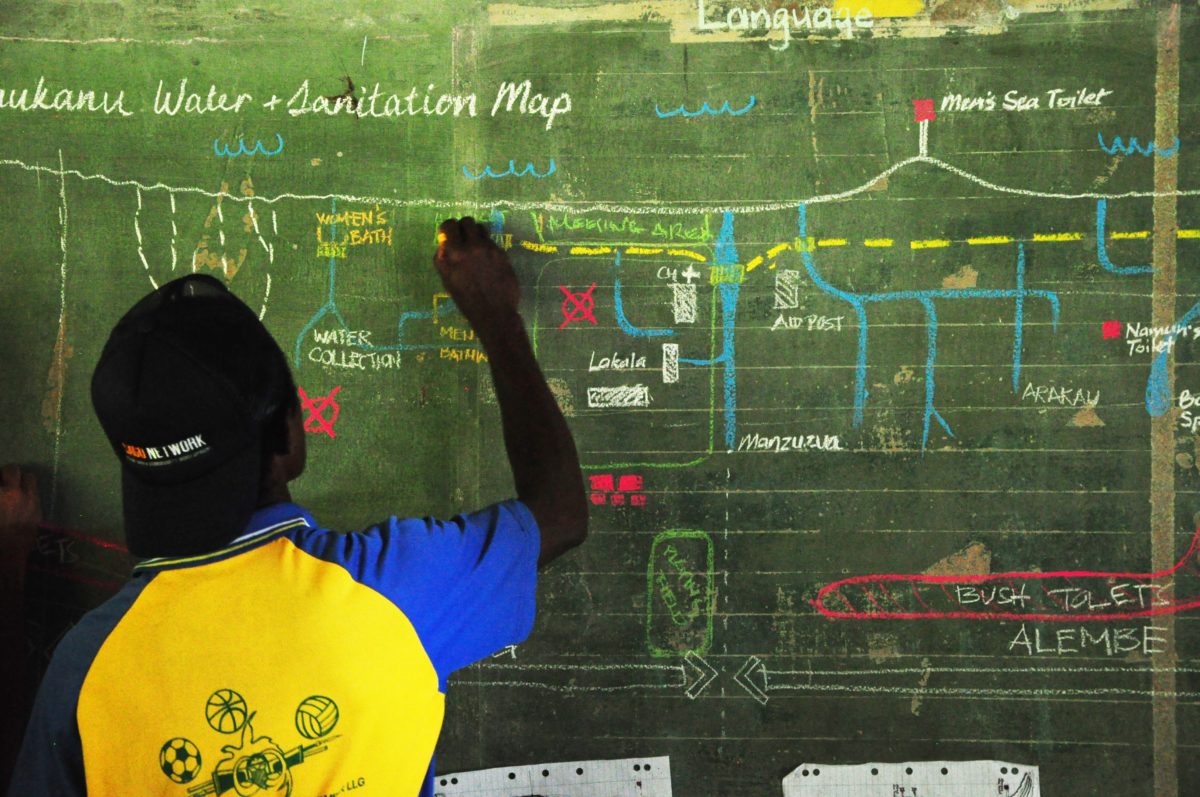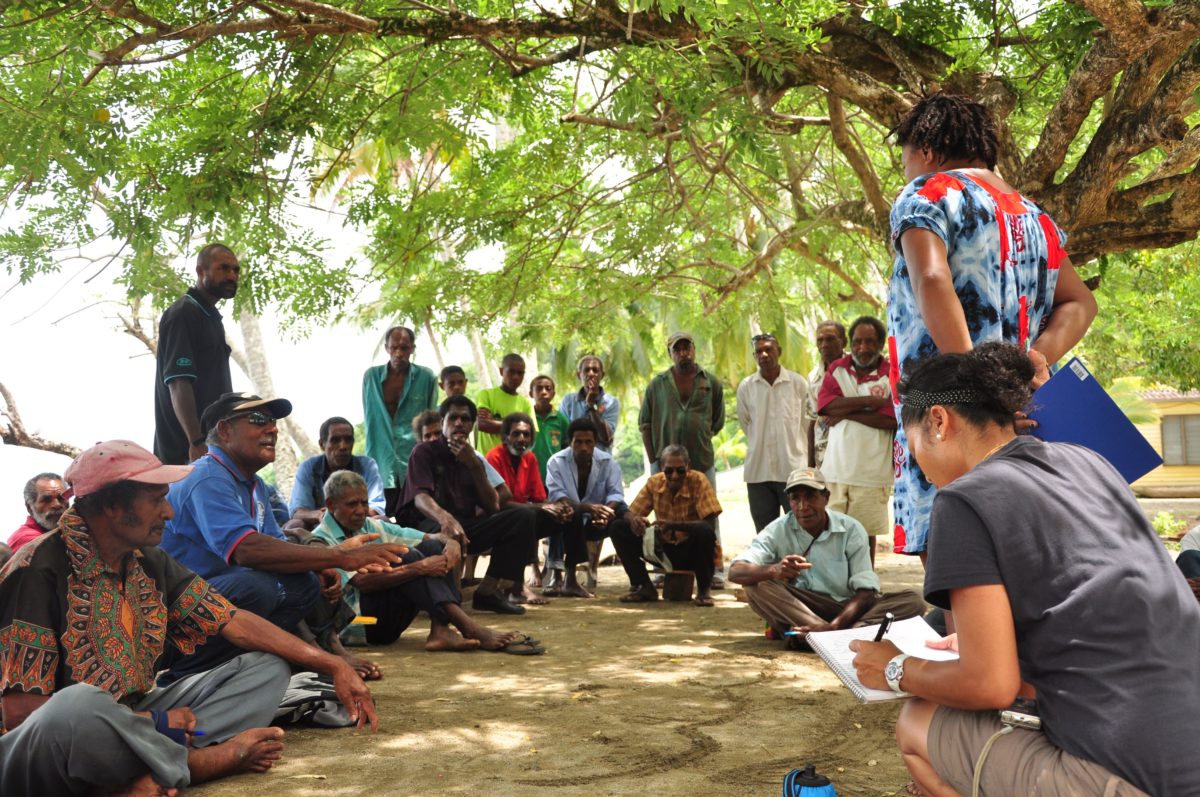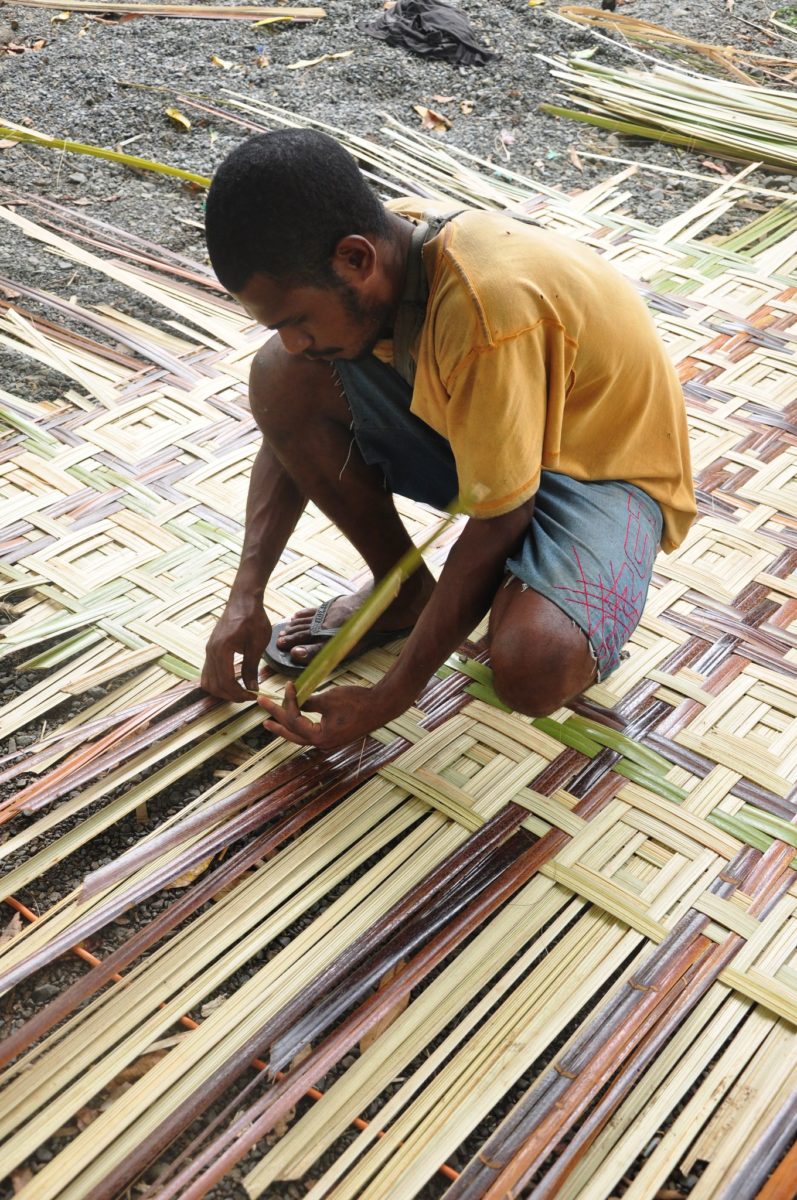Update – Sago Network pt.1

Community mapping and masterplanning in action
Sago Network is a not-for-profit multi-diciplinary team…
…consisting of architects and community development professionals who have been collaborated with Healthabitat over many years in a sustained commitment to improve village-level water and sanitation throughout PNG as a fundamental building block to improving the country’s health. Over recent years, Sago Network’s programmes have settled upon four areas of action to address these health challenges throughout PNG. Healthabitat thinks this is a group that deserves support.
PNG is Australia’s nearest neighbour yet faces the continued challenge of improving its level of development and central to this are much needed health improvements through better access to drinking water and safe sanitation. The PNG Government’s WASH (Water, Sanitation and Hygiene) Policy 2015-2030 notes that 87% of the population live in rural areas and that within this rural
population 67% of people do not have access to ‘improved water sources’ and 87% of people do not have access to ‘improved sanitation facilities’. These statistics have a significant and
broad impact that affects basic village health across the country.

Participatory planning forms a key part of the Sago Network approach.
The 4 focus areas of Sago Network…
1. WASH Awareness and Training through Aerial Health Patrol
Sago Network’s first focus is a long-term WASH awareness and training programme with multiple communities from Western Province. A dedicated team of WASH professionals within Sago Network work with 30 villages throughout remote Western Province as part of an Aerial Health Patrol, a long-term community development initiative aimed at increasing village health. The programme aims to bring about incremental improvements to water, sanitation, hygiene and health throughout participating villages. The patrol team visits each community once every 10 weeks and undertakes wash education and awareness activities and implements small-scale health infrastructure such as village hand washing basins with one community already achieving the objective of a hand basin for every household in the village.
2. WASH Infrastructure Delivery through Community Programmes
Sago Network’s second focus is holistic WASH infrastructure delivery with a specific village each year. Under this programme, Sago Network partners with communities in a comprehensive community development process that commences with participatory planning partnership and funding agreements which empower communities to set their own development direction, then moves through community-centred design, where ideas are explored and refined together, before collaborative construction sees ownership built and facilities delivered. Work under this programme is currently focussed on village sanitation delivery using the Sago Dry Toilet.

Local materials and local skills are sought to be used wherever possible
3. Community-centred Design and Research through Sago Studio
Sago Network’s third focus is a research & development and educational programmed called Sago Studio. Under this programme, Sago Network partners with the PNG University of Technology to run an intensive university course that sees architecture and community development students from PNG and occasionally also from Australia address a design and/or construction challenge that explores an issue that is critical to the country’s development. The Sago Studio programme often partners with a local PNG community to ensure that community needs are engaged with directly and ideas are explored together with a collaborative process that keeps community at the centre of all ideas and decisions. The design challenge at the centre of each Sago Studio varies based on the community needs that warrant exploration. Programmes have extended from the design and construction of low-cost ventilated improved pit toilets, to community bathing facilities, to water pump rehabilitation and the programme is soon to explore challenges surrounding access to water via village collection facilities and early childhood literacy via the design of a prefabricated
pre-school library to be rolled out across the country by another NGO focussed on literacy. This academic and village-level testing ground has given rise to the community programmes
that Sago Network now undertakes and the sanitation solution that the team have developed with the Sago Dry Toilet.
4. PNG’s Permanent, Waterless Sanitation Option – The Sago Dry Toilet
Sago Network’s fourth focus is providing as many communities as possible with access to a permanent, waterless sanitation solution with the Sago Dry Toilet, available throughout PNG via hardware stores. This waterless, above ground and permanent village sanitation solution has been developed by Sago Network and collaborating villages over a period of 5 years as a response to the acute need experienced by communities in PNG with a high water table environment. The well-established and wide spread ventilated improved pit toilet is a costeffective and appropriate solution for many communities. However, a high proportion of PNG’s population living on a narrow coastal fringe or in concentrated valleys where the water table is very high and in these environmental conditions the effective depth of pits is only minimal and the effort to constantly shift toilet locations is physically onerous and politically challenging in ever densifying villages. The need for a permanent, above-ground, waterless sanitation solution was clear and the Sago Dry Toilet is now an industrially-designed and locally manufactured, high quality kit of parts that provides a permanent, above-ground, fully-sealed, waterless sanitation solution.









